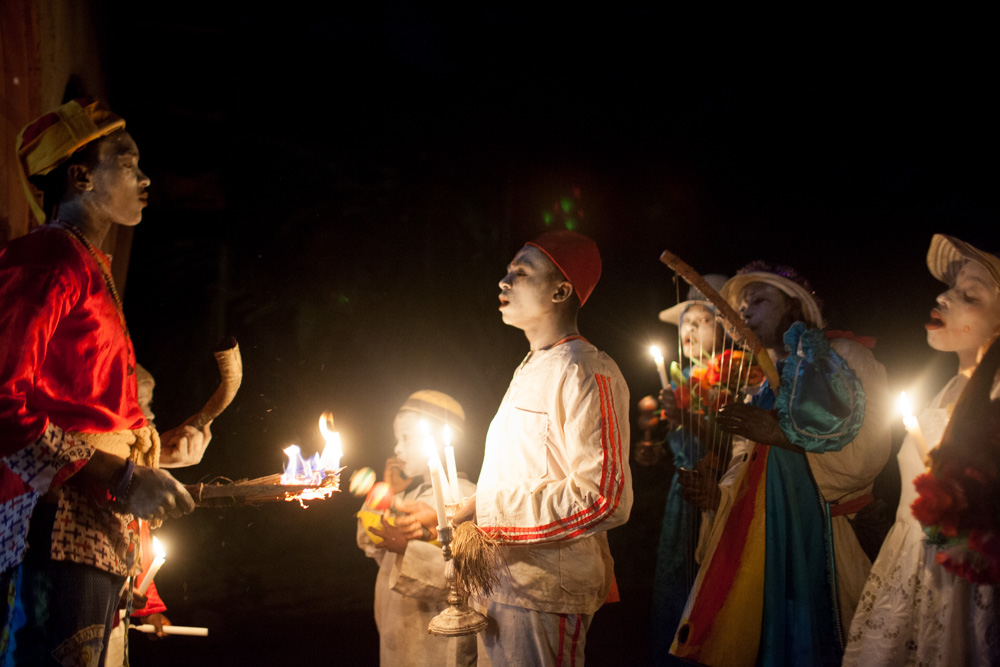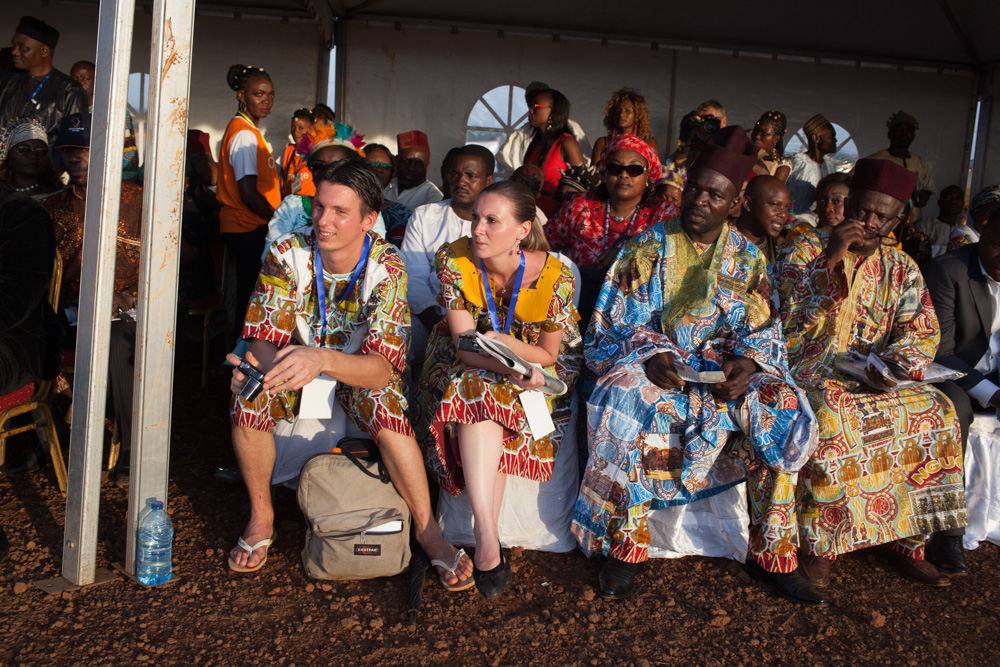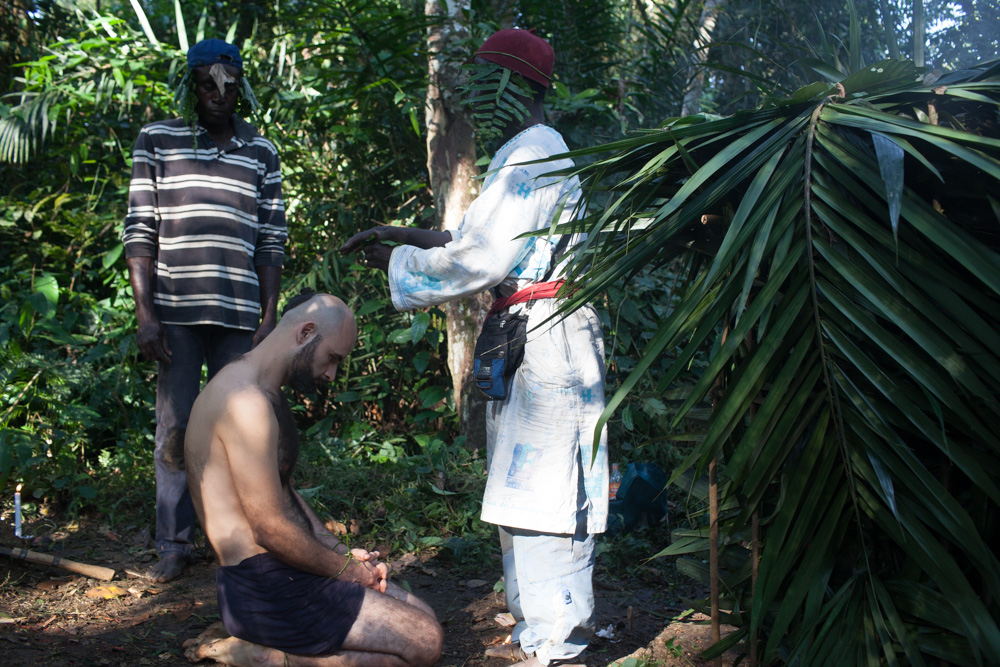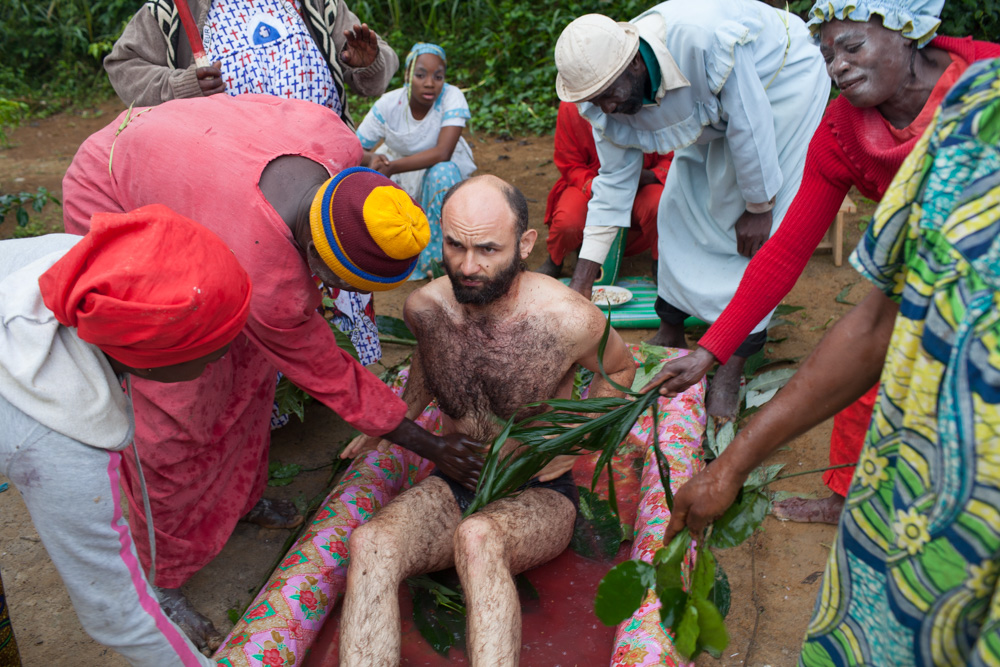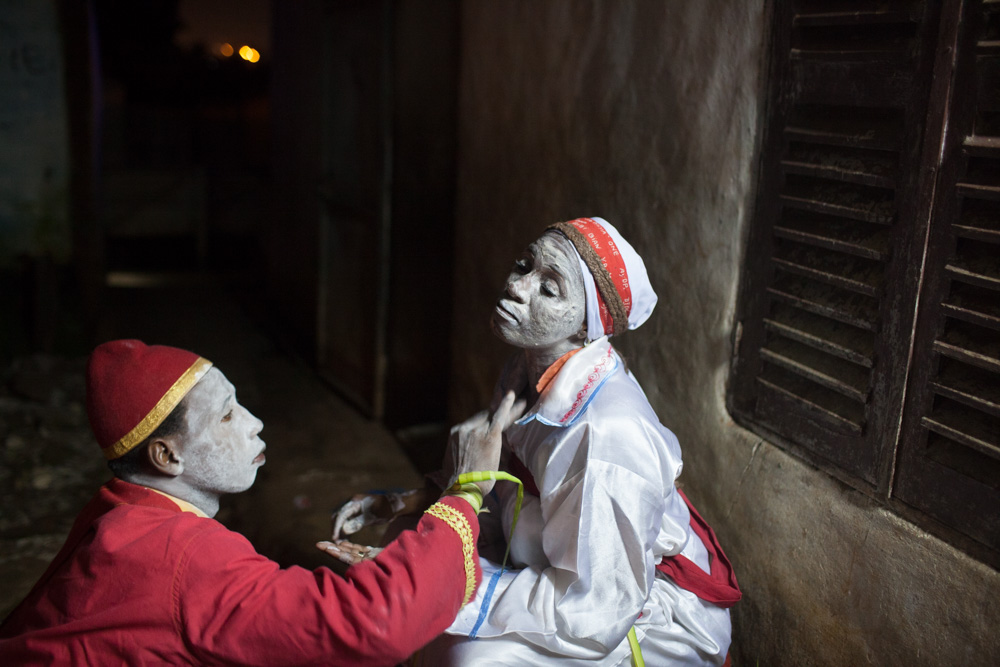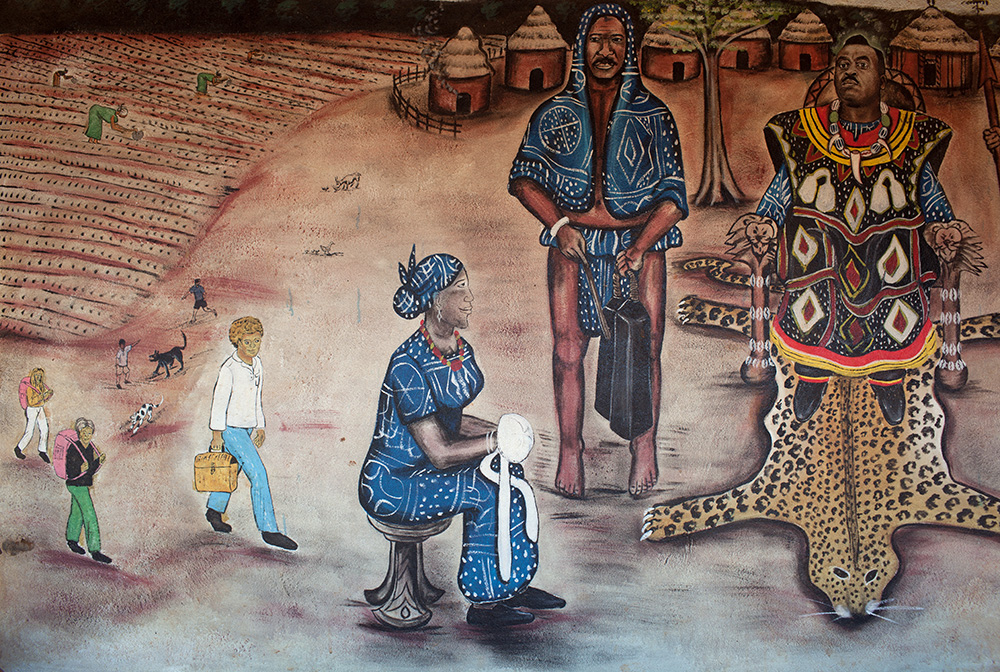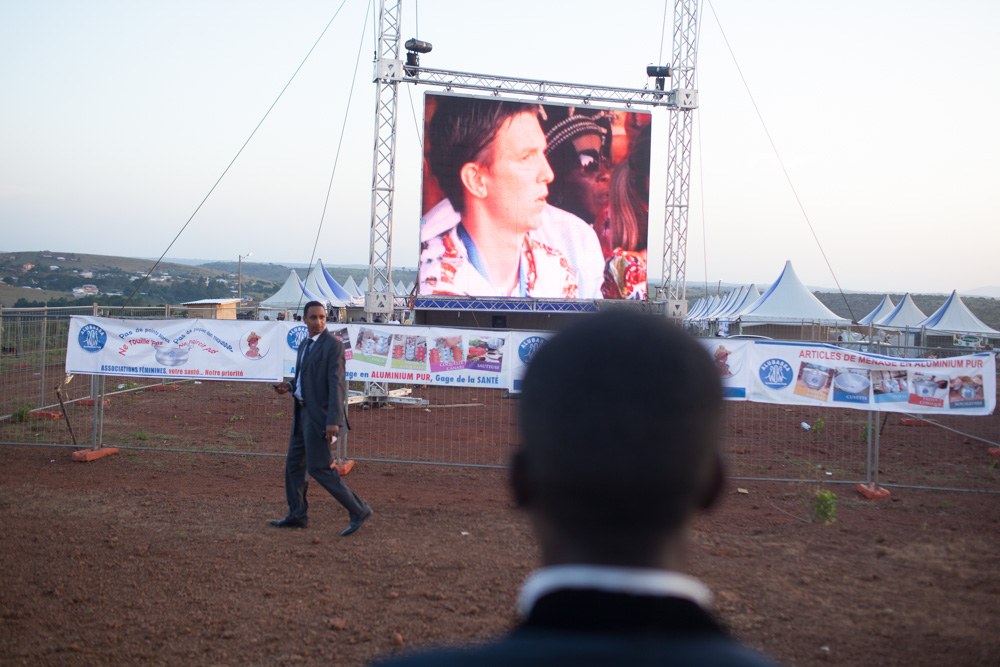“I took a look at the sun. lt blinded me. I saw a path to Eyen Zame [ God ]. I knocked against the door but Eyen Zame said I could not enter. This was because I still had black skin. All the dead are white. When I die I will become white like the ntangan”
the vision of Mendame Nkogo (Ngadi). Age 32. Cocoa planter
p. 480 Fernandez, James W. Bwiti An Ethnography of the Religious Imagination in Africa. Princeton University Press
…
“Spojrzałem w słońce. Oślepiło mnie. Zobaczyłem ścieżkę do Eyen Zame [ Boga ]. Zapukałem do drzwi, ale Eyen Zame powiedział, że nie mogę wejść. A było tak dlatego, bo wciąż miałem czarną skórę. Wszyscy martwi są biali. Kiedy umrę, stanę się biały jak ntangan”
z wizji Mendame Nkogo ( Ngadi ). Wiek- 32 lata, plantator kakao
s. 480 Fernandez, James W. Bwiti An Ethnography of the Religious Imagination in Africa. Princeton University Press
According to the Bwitists, white people have more chances to get in touch with the divine than do blacks. Nobody doubted this, but me. I forced myself to accept this convention, but regarded it as contradictory: as an underestimation of themselves, or an unjustified estimation of whites. The phrase that always ended these pretentious discussions was invariably: “Only through initiation will you clearly understand your position in this world and your gift of being white. Good and Evil are everywhere, among the White, the Black and Red people, but you have better chances than we have, because you are closer to God; for this reason we must respect you”.
Adam, Eve and Iboga, Giorgio Samorini
http://www.lycaeum.org/leda/Documents/Adam,_Eve_and_Iboga.16779.shtml
…
Według wyznawców Bwiti, biali ludzie mają większe szanse na kontakt z boskością niż czarni. Nikt w to nie wątpił, poza mną. Zmusiłem się do zaakceptowania tej konwencji, ale uważałem ją za wewnętrznie sprzeczną, jako niedocenianie siebie, lub też nieuzasadnione przecenianie białych. Zdanie, które niezmiennie ucinało te pretensjonalne dyskusje brzmiało ” Tylko porzez inicjację jasno zrozumiesz swoją pozycję w świecie i swój dar bycia białym. Dobro i Zło są wszędzie, pomiędzy Białymi, Czarnymi i Czerwonymi, ale masz większe szanse niż my, ponieważ jesteś bliżej Boga, z tego powodu musimy cię szanować”
“Adam, Ewa i Iboga”, Giorgio Samorini
http://www.lycaeum.org/leda/Documents/Adam,_Eve_and_Iboga.16779.shtml
“In most of the accounts, the spirits of the next world are described as being white. During the ceremony, the initiates cover their faces with a white powder to signify their entrance into the world beyond. Without attributing a superiority to whiteness, this rite clearly indicates that it is different…”
…
“W większości relacji duchy w zaświatach opisywane są jako białe. Podczas ceremonii, inicjowani pokrywają swe twarze białym proszkiem, zaznaczając swoje wkraczanie do tamtego świata. Bez nadawania białości nadrzędnego statusu, ten rytuał jasno sugeruje, iż jest ona czymś odmiennym…”
“…Some witnesses have even identified Paradise with the white man’s world. Men live from reincarnation to reincarnation. When they have eaten the iboga, they get to see the dead. They are not seen in Heaven or in Hell, but in this world: the person from Gabon becomes a person from Tchad, and so forth, until the person has accomplished all the work that he is assigned to do on earth. Then he becomes white, has money, and lives in Paris which is heaven. When we speak of the end of the world, actually the world will not end, but people will no longer have to work, each will have his own place, and the whole world will be organized as it is in Europe.”
Jaques Binet, “Drugs and mysticism : the Bwiti Cult of the Fang”
…
“… Niektórzy świadkowie nawet identyfikują raj ze światem białego człowieka. Ludzie żyją od reinkarnacji do reinkarnacji. Kiedy zjedzą ibogę, widzą umarłych. Nie są oni w Niebie ani w Piekle, ale w tym świecie, osoba z Gabonu inkarnuje się w kimś z Czadu, i tak dalej, aż wykonana została cała praca jaką przeznaczono mu na ziemi. Wtedy staje się biały, ma pieniądze i żyje w Paryżu, który jest niebem ( Paris/paradis ). Kiedy mówimy o końcu świata, tak naprawdę świat się nie skończy, ale ludzie nie będą musieli już pracować, każdy będzie miał swoje miejsce, i cały świat będzie tak zorganizowany jak to jest w Europie”
Jaques Binet, “Narkotyki i mistycyzm: kult Bwiti w plemieniu Fang”


